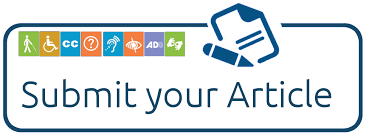Accounting Treatment of Happy Hour in Evaluating the Performance of the Food & Beverage Department at Hotel X
DOI:
https://doi.org/10.55047/jekombital.v4i1.1014Keywords:
Accounting Treatment, Food & Beverage, Happy Hour, PSAK No. 72, USALIAbstract
This study discusses the accounting treatment of the happy hour program in assessing the performance of the Food & Beverage Department at Hotel X. Happy hour is a marketing tactic that aims to increase beverage sales during off-peak hours by offering special promotions, such as buy 1 get 1 free. The research method uses a descriptive qualitative approach with data collection through interviews, observations, and documentation studies and utilizes secondary data sources and primary data. The results showed that the accounting treatment of happy hour program revenue is recorded in the other expense account in the Sales & Marketing department, in accordance with PSAK No. 72 of 2020 and USALI Schedule 7 - Sales & Marketing. Revenue is measured based on predetermined menu prices, as well as market and competitor survey analysis. Presentation is presented in the income statement, and disclosure of this program revenue is disclosed in the notes to the financial statements. The happy hour program has a positive operational impact on the performance of the Food & Beverage department in terms of cost efficiency, sales volume, and service quality.
References
Alvarado, M. (2023). What Is Happy Hour and How to Make It a Success. SpotOn.
Amanamah, R. B., Anaman, P. D., Ahmed, I. A., & Amoh, J. (2025). Internal Controls and Financial Reporting Accuracy in Hotels : The Role of Management Commitment and Employee Training. SEISENSE Business Review, 5(1), 29–49. https://doi.org/https://doi.org/10.33215/65wnpf71
Collier, P. (1998). The practice of management accounting in hotel groups. In Accounting and Finance for the International Hospitality Industry. https://doi.org/10.1016/b978-0-7506-3586-8.50012-9
Fadilla, H. (2024). Pengembangan Sektor Pariwisata untuk Meningkatkan Pendapatan Daerah di Indonesia. Benefit: Journal of Bussiness, Economics, and Finance, 2(1), 36–43. https://doi.org/10.70437/benefit.v2i1.375
Hardika, N. S., Ariana, I. M., Sudana, I. M., & Masih, N. K. (2022). Development of Spreadsheet Based Application for Hotel Accounting Practice Learning. Proceedings of the International Conference on Applied Science and Technology on Social Science 2021 (ICAST-SS 2021), 647. https://doi.org/10.2991/assehr.k.220301.012
Ivanov, S., & Zhechev, V. (2012). Hotel revenue management - A critical literature review. In Tourism (Vol. 60, Issue 2). https://doi.org/10.2139/ssrn.1977467
Lamminmaki, D. (2008). Accounting and the management of outsourcing: An empirical study in the hotel industry. Management Accounting Research, 19(2). https://doi.org/10.1016/j.mar.2008.02.002
Nunes, C. R., & Vieira Machado, M. J. C. (2020). Benchmarking in the hotel industry: The use of usali. International Journal of Process Management and Benchmarking, 10(3). https://doi.org/10.1504/IJPMB.2020.107939
Sebayang, Y. B. (2022). Pengaruh Pelatihan Kerja Terhadap Kinerja Karyawan Di Food And Beverage Department Pada The Hill Hotel & Resort Sibolangit. SKYLANDSEA PROFESIONAL Jurnal Ekonomi, Bisnis Dan Teknologi, 2(1), 55–62.
Sugiyono. (2020). Metodologi Penelitian Pariwisata (Kuantitatif, Kualitatif, Kombinasi, R&D). Alfabeta.
Suwardjono. (2018). Teori Akuntansi: Perekayasaan Pelaporan Keuangan. BPFE Yogyakarta.
Tamatompol, S. P., & Wiryanata, I. A. (2024). Perlakuan Akuntansi Beverage Promotion di Hotel WS. Guna Sewaka, 3(1), 11–26. https://doi.org/10.53977/jgs.v3i1.1595
Ukhina, T. V. (2021). Methodology for the Development and Use of the USALI Standard in International Practice. Revista Gestão Inovação e Tecnologias, 11(2). https://doi.org/10.47059/revistageintec.v11i2.1805
Vives, A., Jacob, M., & Payeras, M. (2018). Revenue management and price optimization techniques in the hotel sector: A critical literature review. In Tourism Economics (Vol. 24, Issue 6). https://doi.org/10.1177/1354816618777590
Zalukhu, M. S., & Arief, A. M. R. (2020). Strategi Promosi Food And Beverage Dalam Menarik Minat Tamu Di Hotel Emerald Garden International Medan. JOM FISIP, 7(1).










.png)




.png)
.png)











.jpg)
.png)


